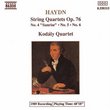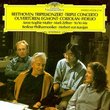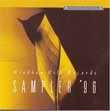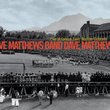| All Artists: Beethoven, Zinman, Tonhalle Orchestra Zurich Title: Symphonies 7 & 8 Members Wishing: 0 Total Copies: 0 Label: Arte Nova Records Release Date: 6/16/1998 Genre: Classical Styles: Historical Periods, Classical (c.1770-1830), Symphonies Number of Discs: 1 SwapaCD Credits: 1 UPC: 743215634126 |
Search - Beethoven, Zinman, Tonhalle Orchestra Zurich :: Symphonies 7 & 8
 | Beethoven, Zinman, Tonhalle Orchestra Zurich Symphonies 7 & 8 Genre: Classical
|
Larger Image |
CD DetailsSimilarly Requested CDs
|
CD ReviewsDefinitely unique J. Buxton | Waltham, MA United States | 05/01/2000 (3 out of 5 stars) "The Penguin Guide lavishes high praise on Zinman's new Beethoven cycle and so I thought I would check it out. For this price, why not? I decided to start with 7 & 8. Zinman is a considerable musical scholar and conductor and there is much to enjoy in these performances. Some of the detail normally glossed over by large orchestras can be heard very well here due to the Zurich Tonhalle's relatively small forces. But in several places in the Seventh and a few places in the Eighth I found myself wondering what I was listening to. Zinman does some strange things with speeds (even by "authentic" standards). I think he follows the metronome markings pretty closely, but to me it just came across as cold. Also, the orchestra sounded thin to me, as if there were only two or three violins and maybe a few woodwinds and brass. In some places this works to advantage, but overall it loses some weight. Definitely a different view of these works, not entirely satisfactory to these ears." Odd Interpretation David Marsden | 02/11/2002 (3 out of 5 stars) "The liner notes make much of the Barenreiter Urtext source for this recording, but the conductor's interpretation of the piece has far more significance than a few different notes here and there. The strength of the Seventh Symphony rests, in my opinion, in the Allegretto. The theme should convey a sense of funereal foreboding, or even menace. Zinman's approach plays much too fast, with an inappropriate "bounciness" in the strings. This deprives the work of much of its strength. Zinman's style, however, works well in the Eighth, a lighter and less serious work than the Seventh." Oddly wonderful and unique David Marsden | Atlanta, GA USA | 09/08/2006 (5 out of 5 stars) "Having read the two reviews of this recording, I must voice my disagreement. The key to the seventh is not simply the Allegretto. I prefer to think of the seventh as the apotheosis of the dance, the Allegretto movement simple taking its place as a part of the whole. The marking of Allegretto certain does not imply "funereal forboding" as one writer desires. Certainly the Marcia funebre from the Eroica is more forboding, but its marking is Adagio assai. No, the Allegretto movement should have lilt. It should feel awkwardly proper yet free. Zinman is one of the few interpreters who has captured the Allegretto as a true dance. Gardiner's recording on Archiv with period instruments is another. Regarding tempi, neither Zinman or Gardiner is extraordinarily fast when compared with other conductors. All three of Karajan's contributions tend to move forward, though the legato playing in the strings tends to bog down the momentum. Perhaps the search for the dirge can be found with Bernstein's Vienna Philhamonic recording. His tempo is too slow, certainly not Allegretto, and as usual he reads more into the music than was perhaps intended. Perhaps some remember a poignant moment from the movie Mr. Holland's Opus when Richard Dreyfuss laments Beethoven's loss of hearing while playing an agonizingly slow recording by the Seattle Symphony. Leave the lamentation to Hollywood. Had Beethoven wallowed in his own sorrow, the world may never have known the marvel of his Choral symphony. Had he not gone deaf, the world may never have known the singular masterpieces of his late string quartets. While not a purist, I prefer to enjoy Beethoven symphonies for what they are, rather than find disappointment in what they are not. Sometimes the greatest mystery of all is the realization that there is no mystery. Zinman's interpretation is certainly full of liberties while holding firm to new research by Jonathan Del Mar. I certainly welcome a critical edition recording on modern instruments, and feel that the reduced forces of the Tonhalle Orchestra are more in line with Beethoven's ideal orchestra. Zinman finds the dance in all four movements of the seventh and provides a buoyant, Haydnesque reading of the eighth that is difficult to match."
|

 Track Listings (8) - Disc #1
Track Listings (8) - Disc #1








